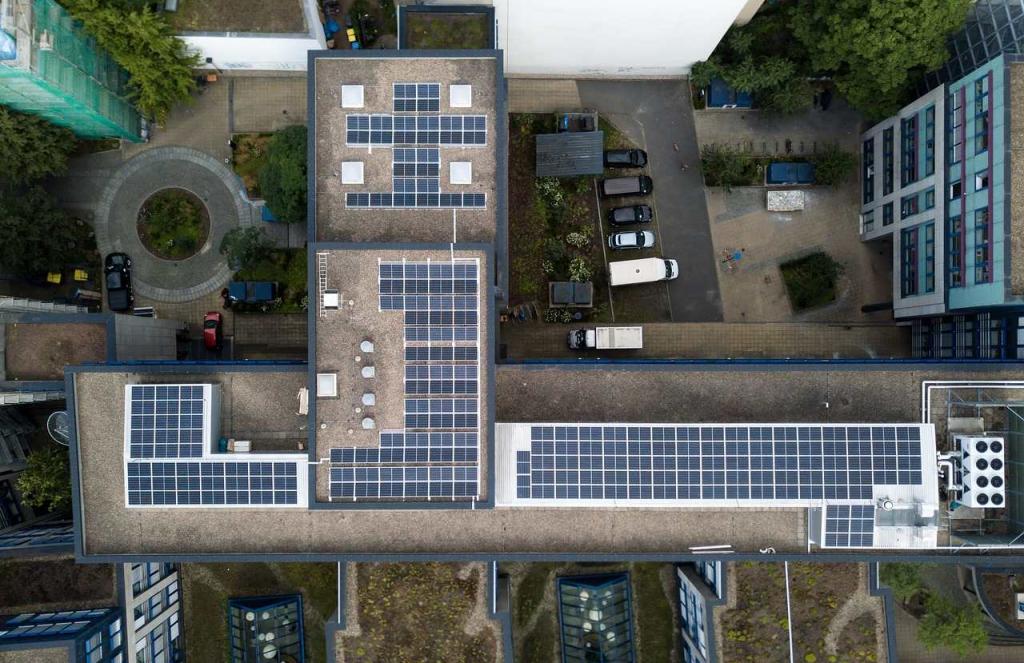Thessaloniki gets ready for its metro launch in November
The underground rapid transit lines have been under construction for almost two decades due to various project delays
 TheMayor.EU logo
TheMayor.EU logo 
The energy transition in cities is far from complete and this winter will be critical, Source: Pixabay
The Eurocities network has published an open letter that demands the attention of this week’s European Council
The leaders of the EU Member States are gathering for a European Council summit in Brussels on 20-21 October, having been invited there by President Charles Michel for a “frank exchange” in light of the previewed hardships during the winter and the ongoing war in Ukraine.
In that context, mayors from the Eurocities network, which champions the interests of municipalities across the continent, have signed and published an open letter calling on European leaders for “a bold and unified European response to the energy crisis exacerbated by the Russian aggression towards Ukraine.”
The mayors claim that the skyrocketing energy prices and inflationary pressure are now putting the provision of public services at risk.
“We have been at the forefront of the health and energy crises, taking bold steps to reorganise services, reallocate budgets, and shield the most vulnerable groups of people through targeted social measures,” reads the letter.
Bearing the responsibility that mayors have to their neighbours and constituents in mind, the mayors call on the European leaders to:
"As cities, we are taking the lead in encouraging behavioural changes across different sectors such as transport, public lighting, heating and cooling, to reduce energy consumption and coordinate demand reduction efforts," write the mayors of Florence, Ghent, Leipzig and Warsaw, who represent the Eurocities network of more than 200 larger European cities.
In line with the points set out above, the mayors suggest the need for greater coordination between the different levels of government to work together to respond to the current crisis. In addition, they signal that the upcoming agreements on the Fit for 55 package and RePowerEU are key opportunities to go a step further to protect citizens, ensure the EU's strategic autonomy and accelerate a sustainable and inclusive transition to a climate-neutral EU.

The underground rapid transit lines have been under construction for almost two decades due to various project delays

Now you can get your wine in Talence by paying directly in Bitcoin

That’s because the state has to spend money on updating the railway infrastructure rather than subsidizing the cost of the popular pass

Rethinking renewable energy sources for the urban landscape

The examples, compiled by Beyond Fossil Fuels, can inform and inspire communities and entrepreneurs that still feel trepidation at the prospect of energy transition

Now you can get your wine in Talence by paying directly in Bitcoin

The 10th European Conference on Sustainable Cities and Towns (ESCT) sets the stage for stronger cooperation between the EU, national and local level to fast track Europe's transition to climate neutrality.

At least, that’s the promise made by the mayor of Paris, Anne Hidalgo

The underground rapid transit lines have been under construction for almost two decades due to various project delays

At least, that’s the promise made by the mayor of Paris, Anne Hidalgo

Hostal de Pinós is located in the geographical centre of the autonomous region

Despite its church-y name, the district has long been known as the hangout spot for the artsy crowds

Urban dwellers across the EU are having a say in making their surroundings friendlier to people and the environment.

Forests in the EU can help green the European construction industry and bolster a continent-wide push for architectural improvements.

Apply by 10 November and do your part for the transformation of European public spaces

An interview with the Mayor of a Polish city that seeks to reinvent itself

An interview with the newly elected ICLEI President and Mayor of Malmö

A conversation with the Mayor of Lisbon about the spirit and dimensions of innovation present in the Portuguese capital














